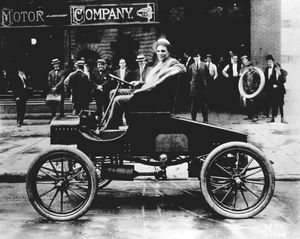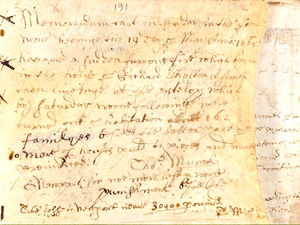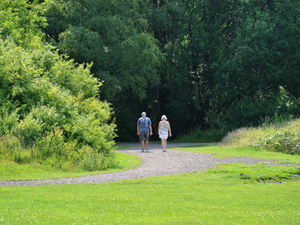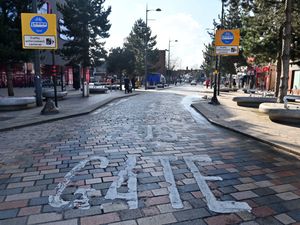How will history judge us way into the future?
As children went back to school this week, one subject will surely have been projected right to the top of the syllabus in terms of importance and priority.

It’s history. Because history is the future.
We’ve had evidence of that over the past few weeks when we have seen how knowledge, or ignorance, of history can shape our townscapes and influence our mindsets. History, or what we think is history, makes a difference to how we see ourselves and how we see others.
And the actions and inactions of those who died centuries before we were born can leave us being painted as institutionally guilty or institutional victims.
So yes, history must from now on dominate the classrooms. But here comes a problem. Whose history should it be?
As Henry Ford said, all history is bunk. Except perhaps the dates, and events. Everything else is propaganda, opinion and prejudice. So it all depends who is writing the history.
A history of the 1980s written by Margaret Thatcher, for example, would, apart from the dates, bear absolutely no relation to a history written of the same period by Arthur Scargill.
When I did history at school we did trade union and social history. There weren’t even any decent battles, unless you include Peterloo. One of the few things I remember is, 1830, John Doherty. It was a rhyme to bring to mind that date, as getting the date right would be helpful at exam time. Of John Doherty and what he may have done, I couldn’t tell you.
It’s the same as when I did technical drawing with Mr Dickenson. When class finished, he asked us what time it was. It was 12.15. “So now you will always remember the date of the Magna Carta. 1215. Dinner time.”
He was proved right. I’ve always remembered it.
Barbaric
The accepted account of the times in which we now live could turn out to be very different to what we imagine, just as those living 100 years ago or 500 years ago could not know how we judge them today.
And judge them we do. The underlying assumption tends to be an arrogant one, that we are somehow better than them. However, that confuses advances in science, technology, education, and so on, with advances in the human condition.
For instance, when Saddam Hussein’s sons were killed in Mosul, the Americans published photographs of their dead bodies to prove to the Iraqis that they were indeed dead. It occurred to me at the time that we had not come very far since they hung up bodies on gibbets to display to the populace.
Similarly, General Gaddafi’s corpse was made into a virtual tourist attraction.
So I’ve taken a leap of imagination to the year 2120 to see what the contemporary history books might say about what’s going on now.
Here is an excerpt from the relevant chapter: “The early decades of the 21st century were a grim time which are now known as the New Dark Age.
“Back in those barbaric and cruel days animals were held captive before being murdered on an industrial scale to be eaten, when healthy alternative dietary options were available. Those that were not eaten were humiliated and described as ‘pets.’
“In this age of ignorance and misunderstanding, people deemed to have committed misdemeanours were locked up and held in grisly confinement, sometimes not for anything they did, but for something they said. In extremis, the confinement could last for the whole of their lives, whereas now, of course, we recognise that those who fail to conform to our rules are mentally ill and they receive effective drug treatment on prescription.
Privileged
“There was systematic destruction of the environment and the masses lived in a state of permanent brainwashing, their minds seized by a sinister worldwide phenomenon dubbed the internet which dispensed daily doses of evil while acting as a cover for a mass surveillance operation. This state of affairs was to continue until the famous Cyber Wars of the 2040s brought liberation and people rediscovered books and turned to the ways of Greta The Great.
“Governance was through so-called politics, a childish game of wilful bigotry in which contrariness and disagreement was a policy. In these strange times leaders were chosen primarily for qualities of buffoonery.
“Medical standards were primitive and there were many unnecessary deaths, even among those prepared to wait long enough to get treatment.
“In 2020 chickens came to roost when years of globalisation and free and easy travel inevitably brought with it globalisation of disease.
“While some meanly protected their comfortable and privileged lifestyles through protectionist cartels, untold millions lived lives blighted by poverty and privation.
“Today little documentary evidence survives to tell us how people back in the 2020s lived or thought. It is believed that trillions of photographic images were indeed taken at the time, and there were trillions of electronic communications between individuals, but everything was deleted, or lost when folk upgraded what was described as ‘hardware.’
“On knowledge relies on a few oil-on-canvas paintings from those days, and from the mouths of those who endured those times who are still alive, all of whom now well over 100, and in our better and more enlightened world are like strange foreigners, cave dwellers brought out into the light.
“Now and again modern historians attempt to interview them, but usually recoil, aghast, as their views are too shocking for any right thinking society.”





